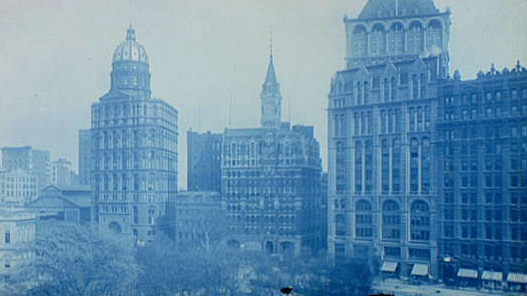About this Site:
This site is devoted to libel in the United States. Specifically, it is about libel as it concerns the media. Although anyone is welcome to view this site, this is a site I designed for the express purpose of helping reporters. It's funny, libel issues affect every journalist, but libel is often not understood terribly well by reporters. That may be because for any company to bring in an expert to explain it to a newsroom usually involves hefty legal fees. One thing to remember -- I am not a lawyer, and this site is no substitute for expert legal advice from an attorney.
If you are a reporter or editor reading this site in need of expert legal advice, consult the following list of First Amendment lawyers published by the Media Law Resource Center. You can also find a local media lawyer through your state press association. A list of associations is available from Newsvoyager.com.
There is also a libel checklist available from the University of Texas system that is extremely useful to journalists wanting to test their work.
 "Newspaper Row" in New York City, c. 1900. (Library of Congress, Prints and Photographs Division, Detroit Publishing
Company Collection)
"Newspaper Row" in New York City, c. 1900. (Library of Congress, Prints and Photographs Division, Detroit Publishing
Company Collection)
A Quick Libel Intro:
For reporters under pressure, libel can be confusing. For armchair observers of the newsmaking process, libel usually...
1. It's something published about someone that isn't true.
2. It is something that damages a person's reputation.
3. It is published with "actual malice" (more about that later), and reckless disregard for the truth.
So for a journalist, it should be easy to avoid being sued for libel, right? -- just stay objective, stick to the facts, and you'll be okay. But the process of gathering and disseminating information is rarely something that occurs in a serene environment. Reporters have to meet deadlines, they are frequently lied to, and they have demanding editors. By the same token, reporters can become careless, are sometimes reckless, and even once in a while become downright malicious. In a sense, libel can be a double-edged sword -- the threat of a libel suit can protect someone's reputation and keep reporters disciplined and scrupulous. That threat can also stifle the best and honest intentions of an aggressive press, and safeguard the reputations of those who do not deserve protection. This site should define the concept of libel, describe the defenses to a libel claim, go over current events on libel, recent case law in libel, and go over other miscellany, like the concept of false light.
How to Use this Site:
I am not a lawyer, and don't pretend to be. Navigating legal issues is like crewing a sailboat -- there's a lot of jargon you're going to hear that you may not understand. Also like crewing a sailboat, that jargon is actually used to make life easier -- it helps everyone get on the same page. To an outsider, it can seem like people using legal jargon are just trying to show off (and it's the same way in sailing, too), when what they are often trying to do is communicate a lot of information using codewords with specific meanings. So because I a). am a layman, and b). need to be specific and precise, I'm going to use those legal terms in this site. On first reference, they will be hyperlinked to a definition supplied by law.com. The definition to each term should open in a new window.About the author:
My name is Billy Shields. I spent most of my seven-year career in journalism as a newspaper reporter in Latin America and the Caribbean. I filed general assignments in Mexico for The Guadalajara Colony Reporter, covered crime and courts for The Virgin Islands Daily News and wrote for The Associated Press.In 2003 I was on a team of writers at the Daily News that won the Associated Press Managing Editors Award for Public Service, after we exposed flagrant instances of government largesse in the territory.
In addition to my native English I speak both Spanish and Portuguese. My work and research have taken me to many countries and territories in the Americas including Brazil, Argentina and Cuba.
Currently I'm working on a master's degree at the University of Florida in Journalism and Latin American Studies. I graduated from Kenyon College in 1997 and am a native of Richmond, Va. You can find papers I've written on the media and the law here and here.






